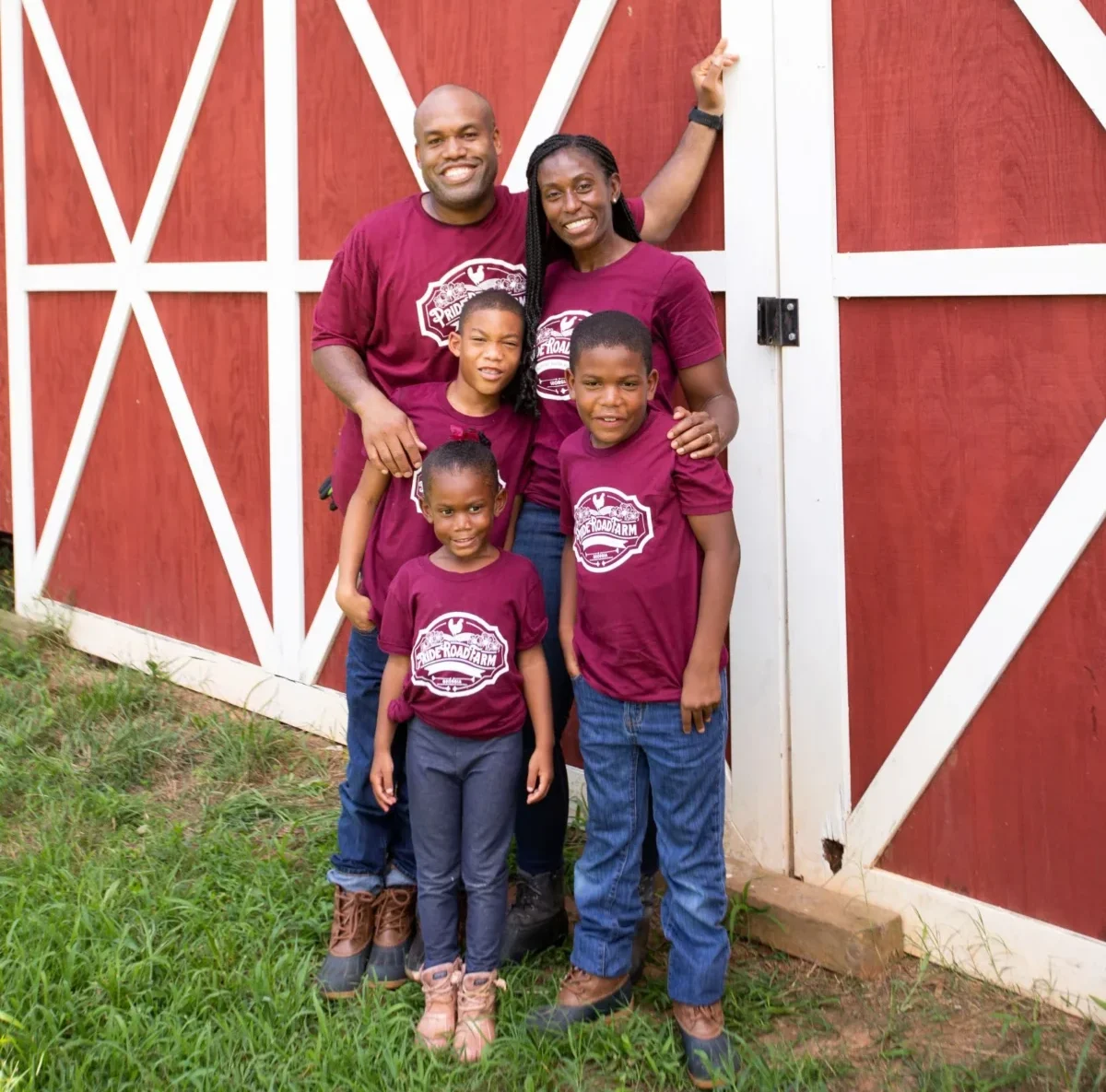Farm to Fork Profile: Making it Work with Pride Road Farm

Najeeb and Millie Muhaimin with their children
When Najeeb Muhaimin approached Nicholas Walker, director of operations at Emory University, about buying the hibiscus products and pastured Halal chickens he was raising at Pride Road Farm, his poultry and hibiscus operation in Shady Dale, Georgia, Walker’s immediate response was: “Let’s make it work.”
The collaborative spirit is an essential part of the relationship between Pride Road and Emory. Walker is a champion of the local food system, as is the University, which has commited to purchase food grown by farmers (including Muhamin and his family) who are part of a project called the Farms Fund, which in turn is a project of The Conservation Fund, a national conservation organization.
The Farms Fund purchases farmland and places conservation easements (binding legal agreements dictating the land’s use) on it that protect the land from development pressure and harmful environmental practices. Once it has acquired the farm, Farms Fund sets up lease-to-own agreements with farmers who are ready to scale their business. The arrangement gives the farmers the opportunity to own their own land at the end of the lease term.
With a priority on first-generation farmers and those from minority groups who have historically been denied land ownership, the Farms Fund aims to build more equitable local food systems in the places they operate.
From Louisiana to Atlanta
At Pride Road, farming is a family affair, says Najeeb. His father Yasin grew up in Zachary, Louisiana, a farming community outside Baton Rouge, growing row crops like collards and watermelon. Yasin raised his family in New Orleans but moved back to Zachary after they were displaced by Hurricane Katrina. Yasin and his wife Elaine started raising chickens and established Yardbird Farm, and Yasin was introduced to growing hibiscus.
Najeeb established Pride Road Farm in 2016 (in a different location) and secured the farmland lease with the Working Farms Fund in 2022. The family’s primary focus is growing hibiscus – Yasin was sold on the potential when he started growing fresh flowers for sale at the farmers market near Baton Rouge, and “he was adamant that we grow it because it’s not being done,” says Najeeb. Today, “we’re on target to become a large domestic source [for the flowers],” he says. They currently have five acres in production, which yields between 30,000 to 40,000 pounds of flowers, keeping 25% of the crop for their own value-added products, with the rest being dehydrated and sold wholesale.

The Muhaimins with their hibiscus soda and tea.
In addition, the family has recently completed construction on a processing facility and received certification to process their pastured chickens on the farm. At the height of the school year, they sell between 40-60 whole Halal-processed birds to Bon Appétit at Emory per week (along with hibiscus soda and teas). At a school serving thousands of meals per day, it might not seem like much, but the arrangement works for both parties. “I appreciate the fact that I can work with the price points that they’re able to offer,” says Najeeb. “Bon Appétit understands that growing and feeding a bird like this isn’t going to get the same price point as a [fast food chicken].”
“We work with the farms individually about what makes sense to them,” says Nicholas. “Then we incorporate that into our menus to make it work – and we’ll spread the Farm to Fork focus around [the different stations in the cafés],” he says.
Making it work, he continues, has a lot to do with teaching his staff about menu design and working with vendors to develop relationships that are mutually beneficial. “I try and teach my chefs to really connect with the person delivering to you. Get a personal relationship, especially when it comes to the farmers. In order to dial it in, you really need to go direct and build that relationship, and that’s where the good stuff comes in.”